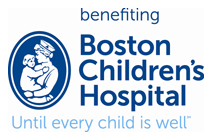With the ongoing support of the Credit Unions Kids at Heart team, Dr. Stone and his team are uncovering the causes of epilepsy in children burdened by unrelenting seizures. The result? Targeted therapies that can halt seizures and enable children to live full and healthy lives. Dr. Stone and his team have designed and refined customized electrodes that can record activity at an individual neuron level. These electrodes enable specialists to understand how epilepsy develops—and where it originates—down to a single cell. It’s equivalent to putting a microphone on every single person in a crowd rather than recording populations of people at once. Dr. Stone implanted electrodes in the study’s first few patients this fall and expected to enroll 20 to 30 patients a year in the study. In addition, the data from the electrodes will also help experts learn about the biology of epilepsy to design and test new treatments.
Bringing in the power of Genetics
Dr. Stone and his team also are extracting DNA from the research and standard electrodes after they are removed to build a brain-wide map of genetic alterations. These alterations may be specific to one location in the brain but not another. This data can help explain, for example, why seizures start in one part of the brain in one patient and not another. Dr. Stone is collaborating with a genetics research fellow (a neurosurgical resident from UCLA) and experts in the Epilepsy Genetics Program at Boston Children’s to uncover unknown causes of epilepsy and change life trajectories.
Epilepsy in children differs from epilepsy in adults in important ways. Young children are progressing through critical developmental stages, and seizures can disrupt that development. If missed, it can be very difficult to get caught up—impacting children for a lifetime.
~Dr. Scellig Stone, MD, PhD

*This research at Boston Children’s Hospital is supported by the CU Kids at Heart Boston Marathon fundraising.